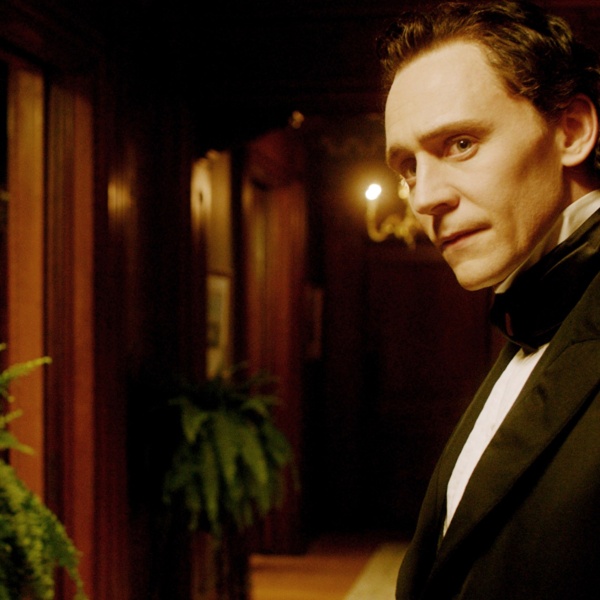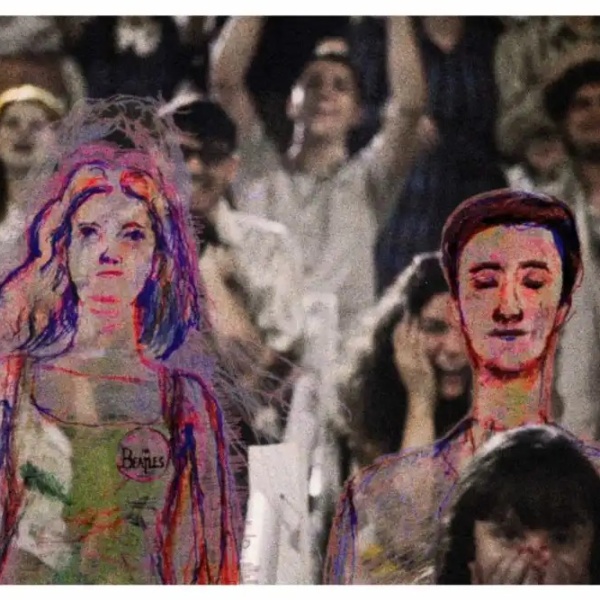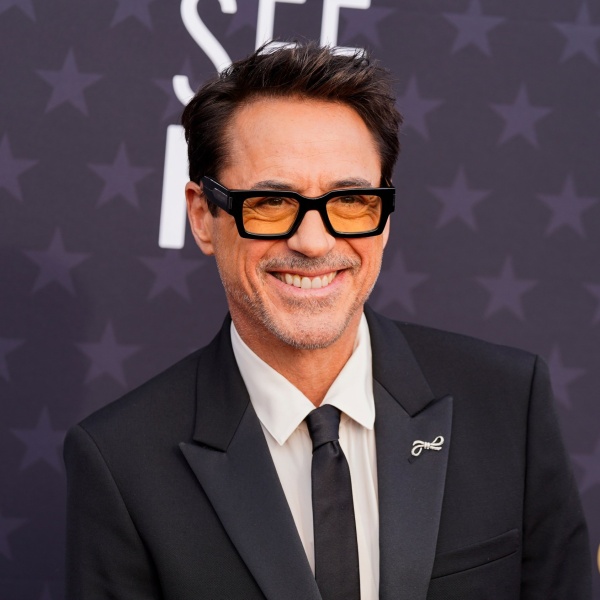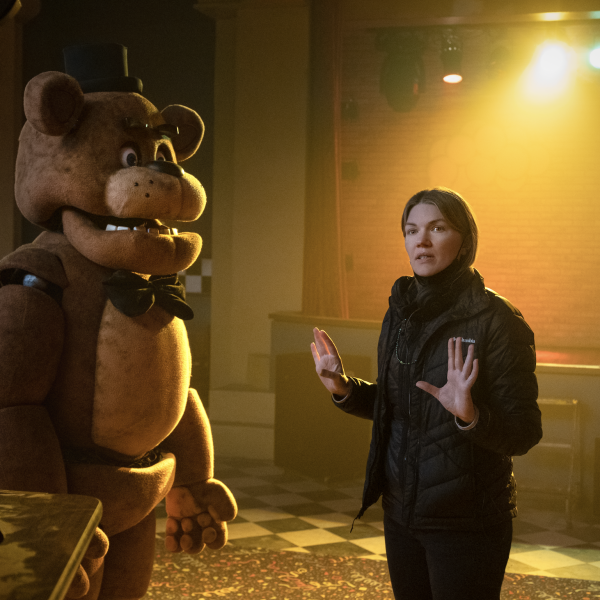Picture Is Also A Surprisingly Funny, Touching Story About The Foibles Of Family; Bale Seems Oscar-Nom Bound

There are onscreen dramas that claim to be about family, but they never really involve the protagonist having to make difficult decisions. Often the family is too saintly, or too important, to ignore. Other times, the best route for the protagonist to follow is to form a surrogate family, as blood relatives appear untrustworthy or devious. Rarely does a film come along that respects its audience enough to present the clear conflicts and difficulties of being around the ones who love you. Whether it be their all-encompassing love, their lack of education, or your own stubborness, the bonds that define what a family means can become frayed. When you love someone, it takes more than a mirror to show you that you have the capacity to simultaneously be terrible.
Despite the singular title, David O. Russell’s “The Fighter” deals with such a family. The Ward/Eklund brood consists of nine scrappy Bostonites, most prominently sluggers Dicky Eklund and Micky Ward. The elder Dicky reached great heights as a prizefighter, nearly prying a belt from the hands of Sugar Ray Leonard, only to succumb to vice. Now reduced to groping at strung-out townies and crack pipes, the slender, faded-out Dicky gets by on training his brother Micky, a promising pugilist who hasn’t yet developed his potential in the ring. Often a source of helpful advice and technique, Dicky is more often hitting the pavement in a druggy haze.

Micky’s love for his brother and tolerance of his extracurricular activities flies in the face of Dicky’s local reputation. Once considered the golden boy of Lowell, Massachusetts, Dicky is now the local crackhead, and while Micky hopes his brother cleans up, he also knows his success will lessen fans’ disgrace of seeing a local hero reduced to running from the cops. The line that separates love and anger is tenuous between the two: Micky can’t hide his disappointment when Dicky attempts a hasty, obvious escape from a drug den their mother storms into, nor can he persuade Dicky to do otherwise.
As played by Mark Wahlberg, Micky is alternately bullheaded and sensitive, a dichotomy Wahlberg has conquered in a series of performances. When asked to be a macho avatar (“Shooter,” “Max Payne”) he often falls short, his onscreen persona surrendering to the softness of his boyish smile and limited vocal skill. This is his third collaboration with O. Russell, however, a director who coached him through playing a reluctant soldier (“Three Kings”) and a belligerent but existentially-troubled firefighter (“I Heart Huckabees“). It’s clear the filmmaker understands how to utilize Wahlberg’s contradictory alpha-male insecurity. Micky is a natural born aggressor, but he is consistently overshadowed by a hectic family that includes his multi-tasking mother, his chatty drug-addled brother, and seven judgmental, gum-snapping sisters.
The loquacious Dicky is represented by Christian Bale, an undervalued actor who’s gotten lost in the big studio system for quite awhile. Respected for a dedication to his craft, Bale has nonetheless been hamstrung by a few questionable career choices and an over-reliance on his dour countenance. It feels as if shackles have been loosened, as Bale’s Dicky is endlessly charismatic and gregarious. He’s the person who walks into the room with all the punch lines, but remains generous enough to lend you a few. With his wiry frame, Bale bounces between the other actors as if he were a wind-up toy, dangerous only when provoked (it’s an infectious and moving turn, one that is pretty much a slam dunk to earn the actor is first Oscar nod). Dicky is a man who’s seen so much, and has experienced so much failure that his default setting is now reactionary, and he cannot understand the every day reminders that he must start to piece his life back together for the sake of others. The HBO cameras following him around only add to this illusion, as he remains oblivious of the fact they’re shooting a documentary about crack addiction.
Well-meaning but under-equipped, mother Alice serves as his manager while also entertaining seven full-grown daughters and, begrudgingly, babysitting trouble-bound Dicky. As the story begins, Micky is coming off three straight losses, and Alice sees no need to redouble her efforts despite Micky’s flailing win-loss record. A full-throated ball-buster, Alice motors along without fully understanding how her actions are stymying Micky’s career, instead insisting on keeping Micky close to Lowell to keep the family together. Her instincts are purely preservation, not presentation, illustrating the universal fear of being someone who has too much love to ever do the right thing.
Micky’s approach is being damaged by the dogged routines of his inner circle, but he still has trepidations when he pursues local barmaid Charlene (Amy Adams). Disliked by her peers because she’s highfalutin’ enough to attend college, but too rambunctious to graduate, she finds purpose in giving Micky the strength he needs to improve. Charlene is the type of barmaid men easily fall for: dimpled and demure, she maintains a tart’s mouth and the ability to throw a punch should it ever come in handy. Mark Wahlberg doesn’t have to do much acting to show his character falling for her. Neither would you.
O. Russell directs with a solid handle on the film’s idiosyncratic tone. The troubled director, whose last film “Nailed” might never see the light of day due to financial issues, knows when to inflate the absurdity of a household of nine siblings, but he isn’t above repeating a neighbor reaction’s shot to simplify how the Ward/Eklund clan looks to an outsider. After all, this is a man who directed the broad farce “Flirting With Disaster” and helped produce “Anchorman: The Legend of Ron Burgundy.” His staging of the fight sequences represents some of the best in-ring shooting the genre has ever seen, though sadly the decision to use HBO cameras renders the dramatic heft a bit more trivial than it really is, a distancing effect that somewhat marginalizes what goes on inside the ring.
Where O. Russell excels is his work with actors. This cast is made up of significantly recognizable faces, and all of them melt into their roles with ease. A special mention must go out to Melissa Leo, an Oscar nominee last year who, in 2010, created two indelible roles in both this and the little-seen “Welcome To The Rileys.” “The Fighter” showcases her as Alice, a brassy extrovert unaware of her blind devotion to routine, while “Rileys” showcases a woman suddenly reawakening into the next phase in her life, curiously turning over a new leaf. Two polar opposite characterizations, two spellbinding performances. Stunningly, one woman. It’s a testament to the cast and crew of “The Fighter” that she delivers one of the year’s most magnetic performances and still doesn’t run away with the movie. [A-]




